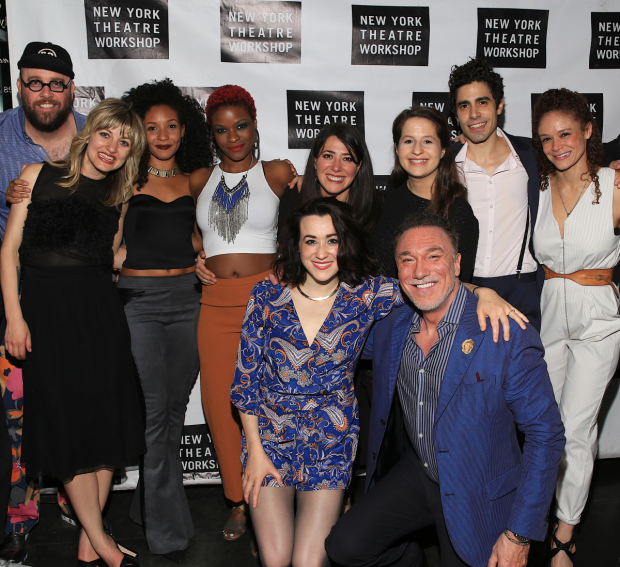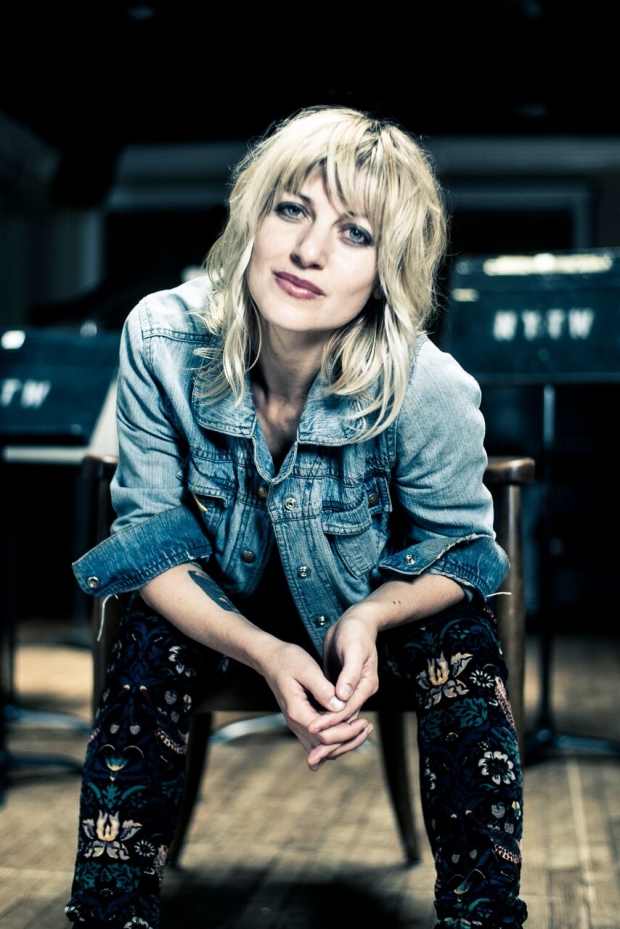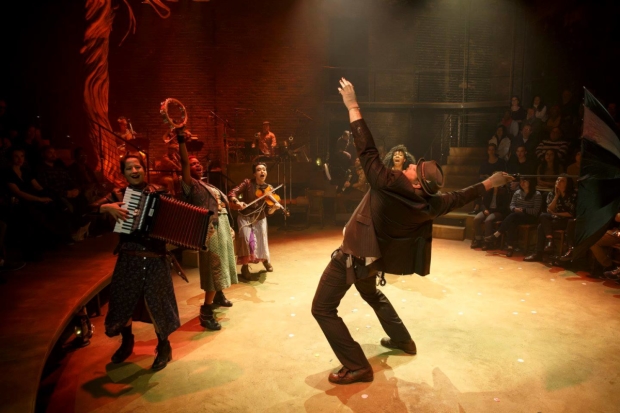Singer-Songwriter Anaïs Mitchell Sends Orpheus and Eurydice Into Hadestown
Mitchell’s folk opera is in the midst of an off-Broadway run at New York Theater Workshop.

(© Tricia Baron)
Anaïs Mitchell is one of the bright spots on the current folk music scene; a singer-songwriter who's toured with Patty Griffin and recorded several albums on Ani DiFranco's Righteous Babe Records label.
One of Mitchell's passion projects is Hadestown, a New Orleans jazz-infused folk opera inspired by the myth of Orpheus and Eurydice. Released as a concept album in 2010, the work is making its off-Broadway debut at New York Theatre Workshop under the visionary direction of Rachel Chavkin.
Mitchell describes her inspiration for the show as a "mash-up of youthful idealism with the jaded world."

(© Jay Sansone)
You've been working on Hadestown for a decade. Take me on the journey of creation.
I'm from Vermont, and the first version of the show was staged as community theater in Vermont, with all of my friends from different bands singing the characters. The primary arranger, Michael Chorney, who's still involved and is playing guitar in the [production's] band, arranged my songs, and there's an original director, Ben Matchstick, who was an important collaborator. It was a pretty abstract version of the story then, but a lot of the songs were from those early days.
I wanted to make an album. That took a few years, to get all those different guest singers in the studio. I was working with Todd Sickafoose, who's also a co-arranger, and curated the [production's] band, and then the whole shebang lived in the music world for several years. We toured around and did shows that were concerts. We would go to a town and get guest singers to sing the roles of the characters, and we would all stand onstage and do it at music stands, and I would narrate what was happening.
At what point did Rachel Chavkin come aboard?
I always wanted to develop it further for the theater, but it took some time to figure out who the partners could be for that. I had moved to New York and I was seeing a bunch of theater, and I saw The Great Comet at Ars Nova. It's such an awesome show and it was overwhelming to be in that tiny space with the performers right on top of you. That made me fall in love with Rachel Chavkin and I reached out to her. We started working together, and that was about three years ago.
How did you hit on the idea of using the Orpheus and Eurydice myth as source material?
It's a story I grew up with. I remember reading it in a children's illustrated book of mythology. I also experienced the movie Black Orpheus, and Orpheus by Jean Cocteau, and the play Orpheus Descending. There's something just so vibey about those pieces. It's a testament to the myth and Orpheus as a musical hero that people are excited to tell his story. That's where it came from.
When I started working on it, I was right out of college. I was idealistic, fresh out of school, guitar in hand, ready to have a songwriter career. It was the second term of George W. Bush and I was a very progressive young person. That mash-up of youthful idealism with the jaded world. I think that Hadestown became a place for those ideas to get played at, with Orpheus representing the beautiful dreams of the young person who believes that if he can write something good enough, he can change the world, and then Hadestown [representing] the monolithic corporate bureaucracy.
In that vein, you have a song called "Why We Build the Wall." Sample lyrics are "The wall keeps out the enemy/and we build the wall to keep us free/that's why we build the wall." It's scarily prescient, and yet was written long before the discussion of building walls came up in the political news media.
I know. It's so bizarre. That came from the earliest version of the show. That one was a gift from the gods. It just came and I was like "That's weird, what's that?" and it became the song I had to sing every night when I play my shows. I didn't expect it to feel new. I've probably played that song more times than anything else that I've written. And suddenly, this spring, I was doing a Rock the Vote tour with Patty Griffin and Sarah Watkins, and the energy in the room when we played that song was so different than anything we had experienced before.
Did opening night of Hadestown at New York Theatre Workshop feel like the satisfying cap on a decade-long project?
You never feel like, "Oh, it's done, gratification, satisfaction." The lesson I experience again and again is that it's not about "opening night." The glory happens in these small moments, and small discoveries in the rehearsal room or at the writing desk, where you're like, "Oh, f**k, that's a great rhyme," or "Oh my god, that's exactly how it should be staged." The camaraderie of people working on an art project together, there's nothing like that. Those moments feel so good. That's what we're in it for.

(© Joan Marcus)








